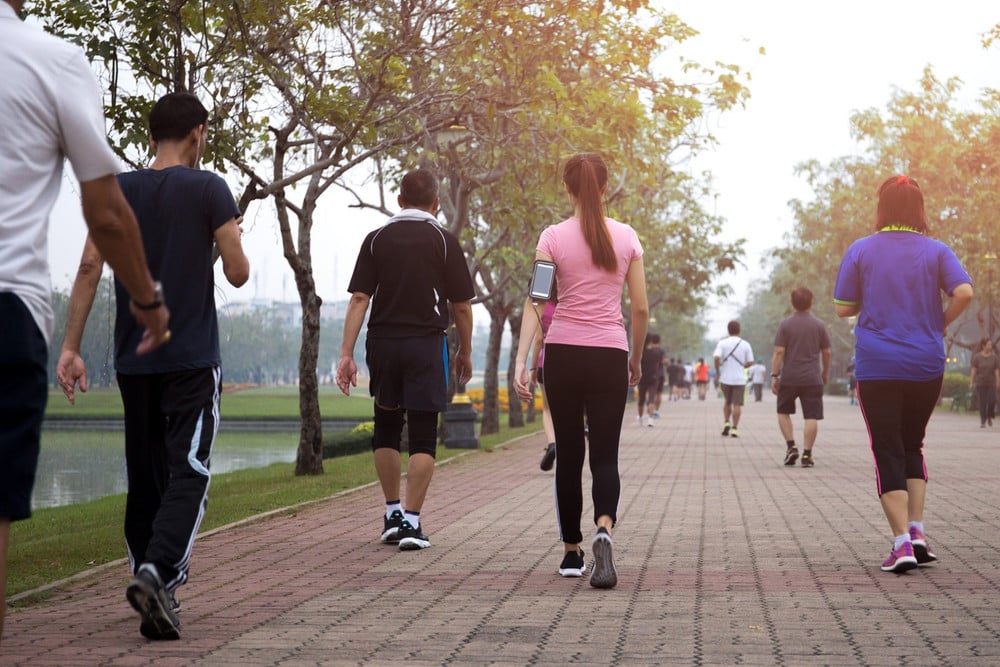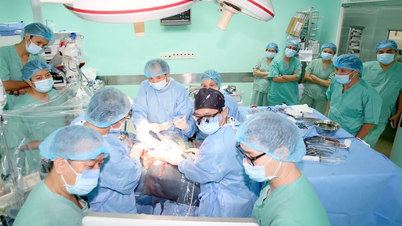1. How does exercise affect the digestive system?
- 1. How does exercise affect the digestive system?
- 2. The role of exercise in intestinal health
- 3. The best exercises for healthy bowels
- 4. Note when exercising to protect the intestines
Not only does physical activity improve your health, it also stimulates biological mechanisms that have a positive impact on your digestive system. To maintain a healthy gut, you need to understand the four main mechanisms that exercise provides:
- Mechanism of increased tone: When exercising, the motor area of the central nervous system is stimulated, this excitement spreads to the autonomic nerve centers, regulating the activities of internal organs, including the digestive system. Abdominal muscle exercises, diaphragm exercises and iliofemoral joint movements are noted to have a clear effect of enhancing intestinal motility;
- Nutritional mechanism of action: Exercise increases blood circulation to the entire body, including the digestive tract. This improves metabolism, oxygen and nutrient supply, while accelerating the repair of damaged intestinal mucosal cells and stimulating the growth of new connective tissue;
- Immune and humoral regulation mechanism: Physical activity stimulates the nervous and endocrine systems, increasing the secretion of hormones (such as adrenal hormones) that have anti-inflammatory effects and increase the body's resistance. This helps reduce chronic inflammatory reactions in the intestines, a key factor in many digestive diseases;

Associate Professor, Dr. Vo Tuong Kha - Head of Department of Sports Medicine, University of Medicine and Pharmacy, Vietnam National University, Hanoi.
- Mechanism of formation of motor-visceral reflexes: Physical exercises establish and strengthen the reflex connection between the motor system and the digestive system. The flow of nerve impulses from the motor organs acts on the nervous center, ensuring the rhythmic regulation of the contraction and secretion functions of the stomach and intestines.
Modern research (like that in Frontiers in Nutrition) also supports this, showing that exercise increases the diversity of the gut microbiome and promotes the production of beneficial short-chain fatty acids (SCFAs), such as butyrate, which nourish the gut lining and reduce inflammation.
2. The role of exercise in intestinal health
- Stimulates bowel movements: Physical activity, even light exercise such as walking, increases blood circulation, helps the abdominal muscles and pelvic floor muscles to contract and relax rhythmically, thereby promoting bowel movements. Exercise is a natural way to reduce constipation and bloating, especially in people who are sedentary or work at a desk. People who maintain the habit of walking or doing light exercise for 30 minutes a day often have more regular bowel movements.
- Improve gut microbiota: Physical activity helps increase microbiome diversity - a fundamental factor for healthy immunity and digestion. Research published in Frontiers in Nutrition (2021) shows that people who exercise regularly have higher proportions of bacteria that produce short-chain fatty acids (SCFAs) such as butyrate, which help nourish the gut lining and reduce inflammation.
WHO guidelines say that 150-300 minutes of moderate-intensity exercise per week is not only good for the heart but also improves metabolism and digestive health through gut microbiota mechanisms.
- Regulating immunity and the gut-brain axis: Exercise helps the body secrete "myokines" - mediators that have anti-inflammatory and immune-regulating effects. Physical activity also reduces stress and improves sleep, two key factors of the "gut-brain axis". When the body relaxes, the vagus nerve is activated, helping the intestines contract more harmoniously.
3. The best exercises for healthy bowels
3.1 Walking: Is the simplest and most effective exercise. Walking gently for 20-30 minutes a day helps stimulate the gastro-intestinal reflex, reduce bloating and aid digestion after meals. WHO recommends brisk walking or walking after meals for about 15 minutes to improve digestion and control weight.
3.2 Yoga : Yoga combines deep breathing, stretching and gentle abdominal rotations - very beneficial for the digestive system. Poses such as spinal twists, cobra or baby... help stimulate intestinal motility, reduce bloating. A study in India (2024) showed that practicing yoga 3 times a week for 8 weeks significantly reduced symptoms of irritable bowel syndrome (IBS).
3.3 Pilates and core exercises: Pilates focuses on controlling breathing and strengthening the abdominal muscles - which directly affect bowel movements. Movements such as pulling the knees to the chest, planking, rotating the torso... help gently massage the abdomen, improve circulation and reduce constipation.
3.4 Jogging or slow cycling: Moderate aerobic exercises (jogging, leisurely cycling) increase blood flow to the digestive system and improve metabolism.
3.5 Stretching and light exercise habits : Even just standing up, stretching, and walking lightly every 30-60 minutes while sitting at work can help reduce abdominal pressure and stimulate gentle bowel movements. According to the CDC (USA), people who sit for too long are twice as likely to have digestive disorders as people who exercise regularly.

Walking gently for 20 - 30 minutes every day helps stimulate the gastro-enteric reflex, reduce bloating and aid digestion after eating.
4. Note when exercising to protect the intestines
3.1 Exercise moderately, avoid overexertion: Prolonged high-intensity exercise can cause dehydration, increase intestinal mucosal permeability and cause diarrhea due to intestinal ischemia.
WHO and CDC recommend that adults should maintain: 150-300 minutes/week of moderate-intensity activity (such as brisk walking, yoga, light cycling), or 75-150 minutes/week of vigorous-intensity activity (jogging, active sports); should not overdo it, especially when tired, stressed, or full.
3.2 Pay attention to exercise time: Avoid strenuous exercise immediately after eating - should rest for at least 30 minutes; can walk lightly for 10 - 15 minutes after meals to stimulate digestion. Exercising in the morning or early afternoon helps increase energy and support the biological rhythm of the intestines.
3.3 Drink enough water: Water is a "lubricant" for intestinal peristalsis. When exercising, dehydration causes dry stools and reduces digestive efficiency, so you should replenish water before, during and after exercise.
3.4 Personalize your exercise level: People with digestive disorders (IBS, ulcerative colitis, Crohn's) should choose light exercises and avoid overexertion. If abdominal pain, diarrhea, or excessive fatigue occurs, you should stop and adjust.
3.5 Combine a healthy lifestyle: The effectiveness of exercise will increase when combined with a high-fiber diet, adequate sleep and stress management. According to WHO, a healthy gut starts with a balanced lifestyle.
Exercise not only helps the body stay flexible but is also a "natural medicine" for the digestive system. Walking, yoga, Pilates or simple stretching movements can all stimulate bowel movements, improve microflora and reduce inflammation. The key is to be regular, moderate and listen to your body.
When your gut is working smoothly, digestion is smooth, and your mind is more relaxed -- that's the foundation for a healthy body from the inside out.
Readers can see more:
Source: https://suckhoedoisong.vn/lieu-thuoc-tu-nhien-giup-ruot-khoe-manh-169251117162651325.htm







![[Photo] General Secretary To Lam and National Assembly Chairman Tran Thanh Man attend the 80th Anniversary of the Traditional Day of the Vietnamese Inspection Sector](https://vphoto.vietnam.vn/thumb/1200x675/vietnam/resource/IMAGE/2025/11/17/1763356362984_a2-bnd-7940-3561-jpg.webp)


































































































Comment (0)